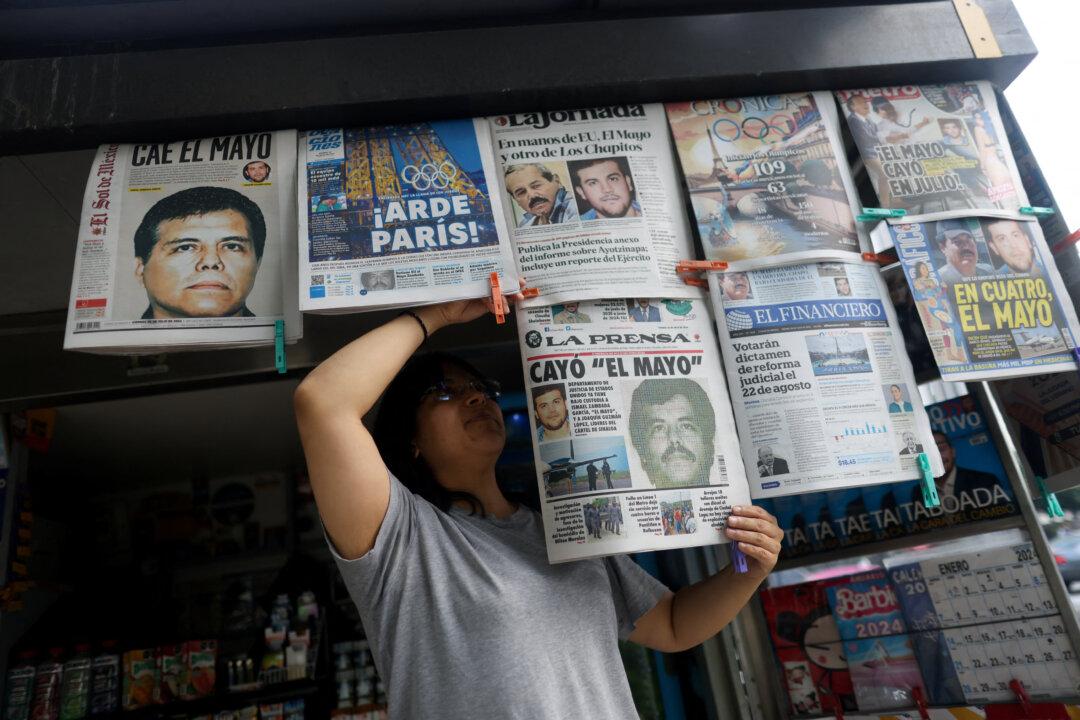LONDON/SYDNEY—World stocks rose on Friday, recovering from the previous session’s 2–1/2 year lows on an overnight rally in U.S. stocks, while British government bonds rose on speculation of a U-turn on the country’s fiscal plans.
Much-anticipated U.S. data on Thursday showed core inflation—which excludes food and fuel prices— came in above forecasts at 6.6 percent, the biggest annual increase in 40 years, driven by large price gains in the services sector.
The data reinforced views that interest rates would stay higher for longer, hastening the risk of a global recession.
U.S. stocks, however, surged to close more than 2 percent higher, as investors covering short bets drove a dramatic rebound from an earlier selloff.
“Traders pointed to a technical rebound as investors unwound defensive positions which had been in place ahead of the inflation report,” said Richard Hunter, head of markets at interactive investor.
U.S. S&P 500 futures rose 0.23 percent, indicating a higher open on Wall Street.
The MSCI world equity index gained 0.63 percent, but was heading for little change on the week.
European stocks hit a one-week high and were up 1.1 percent. Britain’s FTSE rose 0.93 percent.
Following the strong U.S. inflation report, the markets have now fully priced in a 75 basis point hike from the Fed at its November meeting and a 71.5 percent probability for another jumbo rate hike in December.
Futures have also suggested that rates would now peak at 5 percent, bringing them to levels not seen since 2007.
The aggressive tightening from the Fed is putting pressure on central banks around the globe to follow.
MSCI’s broadest index of Asia-Pacific shares outside Japan advanced 2.2 percent. Japan’s Nikkei jumped 3.3 percent, enjoying the best day since March.
Chinese blue chips also rose more than 2 percent, marking the biggest gain since August.
Global markets have been volatile as investors worry rising interest rates could push major economies into recession before they tame inflation.
The two-year U.S. Treasury yield, which typically moves in step with interest rate expectations, dropped 2.5 basis points to 4.424 percent after hitting a 15-year high of 4.535 percent overnight.
The dollar index inched 0.1 percent lower to 112.64, following a drop of 0.6 percent in the previous session.
The low-yielding Japanese yen was at 147.5 per dollar after touching a 32-year low of 147.67 on Thursday. That is weaker than the 145.9 level which prompted Japanese authorities to intervene last month to prop up the currency.
The euro hit one-week highs against the dollar before steadying at $0.9769.
British government bonds have outperformed in recent days, with prices rising after reports on Thursday that the government was considering a U-turn on some of the measures in its late-September “mini-budget” that triggered a historic gilts slump and concerns about financial stability.
Headlines on Friday that British finance minister Kwasi Kwarteng was cutting short a trip to Washington to return to London and work on the fiscal plan also helped sentiment.
British 10-year gilt yields, which move inversely to price, fell to their lowest since Oct 6 at 4.01 percent, a drop of 18 basis points on the day.
Sterling, which surged 2.0 percent on Thursday on reports of the UK U-turn, dropped 0.5 percent to $1.127.
Investors are also nervously awaiting an impending deadline for the end of the Bank of England’s emergency bond-buying program, after the central bank stepped in last month to buy bonds to relieve pressure in the two trillion pound UK pensions sector.
“Should the Bank of England step away from the market today as suggested, we could see gilt yields rising, and the feedback loop of selling of gilts—as pensions schemes struggle to maintain hedges— reassert itself,” said Chris Arcari, head of capital markets at consultants Hymans Robertson.
Yields on German 10-year government bonds, the benchmark for the eurozone, dropped 9 bps to 2.2 percent.
Oil prices reversed earlier losses, supported by a weaker U.S. dollar and falling diesel inventories. Brent crude futures were steady at $94.62 a barrel while U.S. West Texas Intermediate (WTI) crude futures gained 0.15 percent to $89.23 per barrel.
Gold was steady at $1,664 per ounce.





